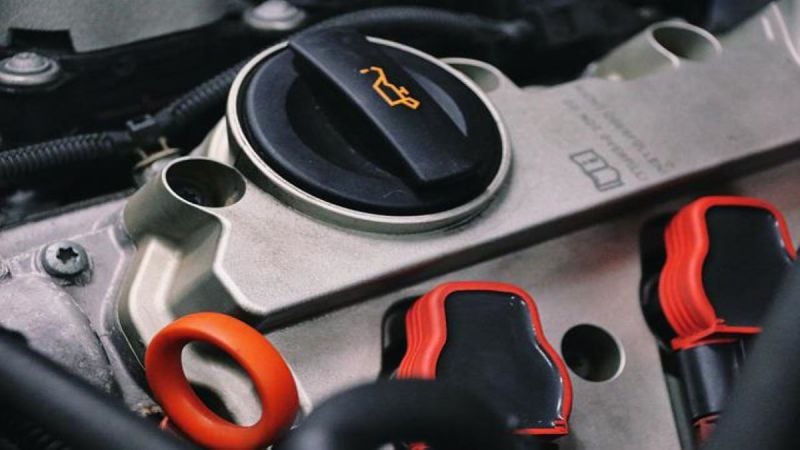Buying the Best Oil for Your Car Without Going Broke
The most important car maintenance focus all car owners should have is ensuring not only is their vehicle’s motor oil changed regularly enough, but also changing the oil with the best oil possible that fits within your car maintenance budget.
Related article: Consumer Reports Car Experts Have This to Say About Whether You Should Pay More on Synthetic Oil for Your Oil Change
It’s human nature to assume that if it costs more...then it must be better. I mean…hey, if you look at the labeling on the back of those quart-sized plastic bottles of oil you will see the starred benefits backing up the claims that the better oil within a single brand typically increases with the pricing---more stars translates into a higher price.
Related article: Avoid Lube Center Scams with This Mechanic’s Step by Step DIY Oil and Filter Change Demo
In fact, I admit that when given a purchasing choice I am guilty of choosing the 2nd best of whatever is sold when I don’t have the time or energy to do the pre-purchasing research I should. The only exception to this is with cellphones---I always choose 2nd cheapest phone offered with any brand…but I’m starting to get off topic.
The point is, is this kind of thinking a fallacy?
The short answer is both “yes” and “no.” Confusing right?! But it needn’t be when you do a little research on your own finding out what other people have discovered when putting engine oil brands to the test and reporting the results.
Someone Did the Research for You
That is the case with a recent video posted from the Project Farm YouTube channel where its host does a comparison test between four motor oils within the same brand that differ in their claims and in their pricing. In this case Pennzoil’s “Synthetic Blend,” “Full Synthetic,” “Platinum Full Synthetic,” and “Ultra Platinum Full Synthetic” oils priced respectively at $17, $20, $24 and $28 for a 5-quart oil change.
Related article: Subaru Crosstrek Engine Oil Analysis After 3,000 Mile Test
The Value Watching This Video
The value of this video is that it demonstrates what you should be thinking about when it comes to supplying your engine with the best oil you can while factoring in the cost; and, whether paying more (or choosing the second highest priced) is accurate enough regarding the health of your car.
In particular, the video touches on some important points to consider when it comes to where your vehicle is driven and whether it is a turbocharged or a direct fuel injected model that have some special problems of their own.
That said, here is the video in its entirety and highly recommended watching:
Are They All the Same Motor Oil? Let's Settle This! Four Levels of Pennzoil Motor Oil Compared
And finally…
For additional oil maintenance related articles, here are a few for your consideration:
• Oil Change Failures: Expect the Unexpected
• Oil Change Customer Sued for Death in Car Service Center Incident
• Why Toyotas Burn So Much Oil and What You Can Do About It
COMING UP NEXT: Chevy Engine Autopsy Reveals $20 Engine Killer
Timothy Boyer is a Torque News automotive reporter based in Cincinnati. Experienced with early car restorations, he regularly restores older vehicles with engine modifications for improved performance. Follow Tim on Twitter at @TimBoyerWrites for daily new and used vehicle news.
Image Source: Pixabay
Set as google preferred source











Comments
This video shows nothing
Permalink
This video shows nothing about how motor oil performs in an engine, these results don't show anything that matters to motor oil, not the timing chain wear performance, the resistance to LSPI, how it performs in the MRV or CCS tests, those "cold flow" results using gravity are more akin to testing the pour point, which was determined insufficient a long time ago when the testing for MRV and CCS became the standard for determining the W rating. These Project Farm videos even disclaim that they are for entertainment purposes only, as he being a regular guy doesn't have the kind of expendable resources to set up an actual proper lab to test all the things that really matter in a modern motor oil. Those bearing wear scar tests don't mean anything in pressure fed journal bearings in an engine, it's intended to show the performance of EP additives in grease and gear oil, motor oil is not an EP lubricant and it has many more duties than lubricants used in sealed bearings and gear trains. A cheap $20 VOA doesn't show everything in a motor oil including many modern organic anti-friction/anti-wear additives that are used over old school anti-wear additives because ZDDP actually increases friction and causes lower fuel economy and older metallic additives create more ash than modern organic additives. Ash is undesirable with GPFs on the horizon and in GDI engines where oil from the PCV system burns to the back of the valves where there's no fuel wash like on older port injected engines.